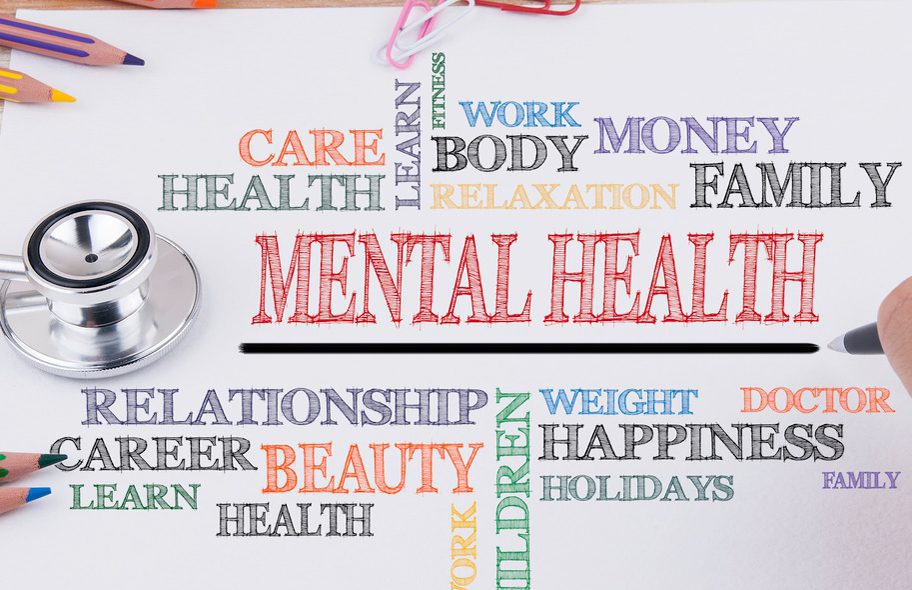Our Helpline & Information Officer, Uschi Stickroth, provides ways in which you can help improve your mental health.
This week is Mental Health Awareness Week. We know that the COVID-19 pandemic has had a big impact on people’s mental health over the past year.
In our recent COVID and epilepsy survey, 80% of survey respondents felt the COVID-19 pandemic has had an impact on their mental health and wellbeing, with respondents pointing to additional stress, worry and frustration about the pandemic and their epilepsy.
When compared to the first lockdown in March 2020, over half of respondents felt more anxious, stressed and depressed this year. Additionally, over 40% felt more isolated now than they did during the first lockdown.
As we know, epilepsy is so much more than seizures. Many people living with epilepsy are also affected by anxiety and stress, side effects of medication, issues with memory and so much more.
Most people with epilepsy will be familiar with mental health struggles. In the UK, 1 in 6 people will have depression but for people with epilepsy, this figure increases to 1 in 3.
There can be many reasons why people with epilepsy can have low mood or suffer from depression. A diagnosis can change your whole life and it may feel like your world’s been turned upside down.
However, there are ways to help improve your mental health and general wellbeing. Below are just five steps you can take to improve your mental health.
1. Talk about your feelings
Talking about your feelings can help you stay in good mental health and deal with times when you feel troubled.
Talking about your feelings isn’t a sign of weakness. It’s part of taking charge of your wellbeing and doing what you can to stay healthy.
It can also be a way to cope with a problem you’ve been carrying around in your head for a while. Just being listened to can help you feel supported and less alone.
Also, it works both ways, as if you open up, it might encourage others to do the same.
It could be to a family member, a friend or you can call our freephone helpline on 0808 800 2200 where we provide a safe and non-judgemental space for anyone who wants to talk.
2. Keep active
Regular exercise can boost your self-esteem and help you concentrate, sleep and feel better.
It also keeps the brain and your other vital organs healthy.
Experts say most people should do about 30 minutes exercise at least five days a week.
Exercising doesn’t just mean doing sport or going to the gym. Walks in the park, gardening or housework can also keep you active.
3. Eat and drink sensibly
Food can have a long-lasting effect on your mental health. Your brain needs a mix of nutrients to stay healthy and function well, just like the other organs in your body.
A diet that’s good for your physical health is also good for your mental health.
A healthy balanced diet includes:
- Lots of different types of fruit and vegetables
- Wholegrain cereals or bread
- Nuts and seeds
- Dairy products
- Oily fish
- Plenty of water
Try to limit how many high-caffeine or sugary drinks you have and avoid too much alcohol.
4. Ask for help
None of us are superhuman. We all sometimes get tired or overwhelmed by how we feel or when things go wrong.
If things are getting too much for you and you feel you can’t cope, ask for help.
Your family or friends may be able to offer practical help or a listening ear. Visit your GP who may suggest ways you or your family can help you or may refer you to a specialist or another part of the health service.
You can join our safe and non-judgemental Facebook Support Group and talk to people who are in similar situations to yourself.
Or you can call our freephone helpline if you need someone to talk too.
5. Do something you love doing
What do you love doing? Are there activities you can lose yourself in? What did you love doing in the past?
Enjoying yourself helps beat stress and doing an activity that you enjoy and are probably good at can help boost your self-esteem and your mental health.
Whether that is a hobby like gardening or doing a crossword, doing something you enjoy can be a great boost for your mental health.
For more information on how to help your mental health and wellbeing, please read our emotional wellbeing guide or call our helpline on 0808 800 2200 or email contact@epilepsyscotland.org.uk




